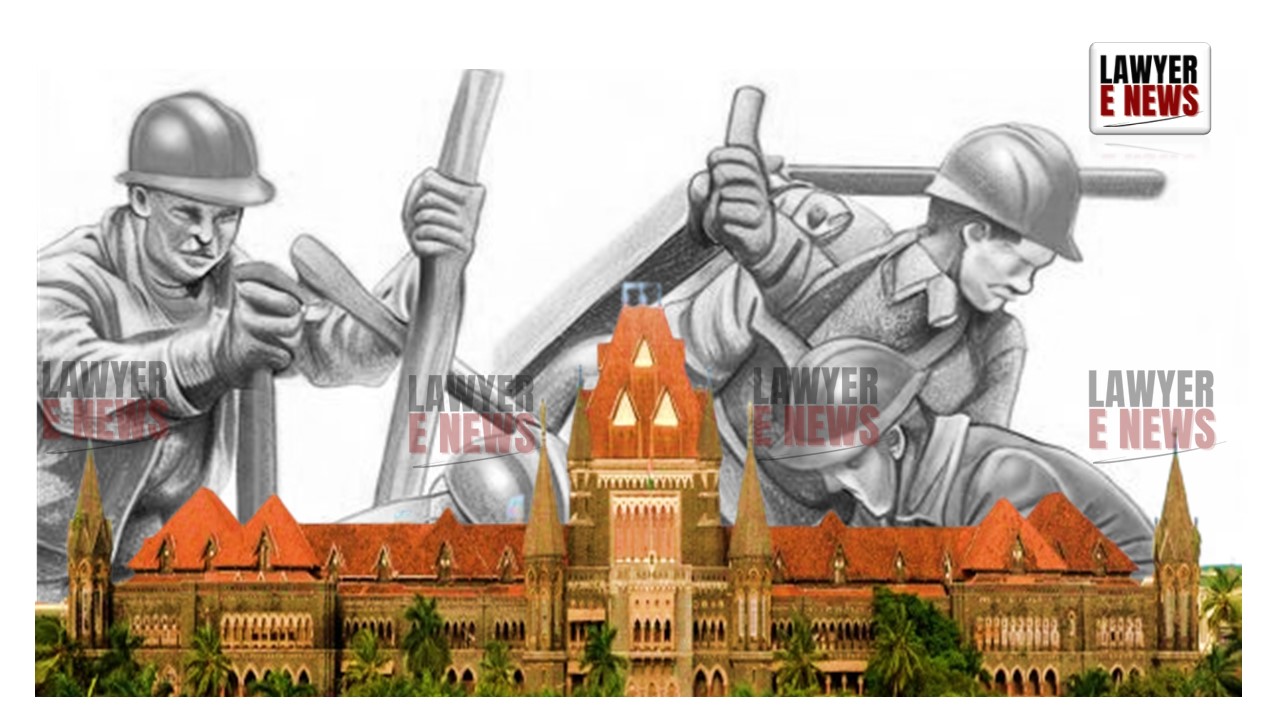-
by Admin
15 February 2026 5:35 AM



In a significant ruling, the Bombay High Court upheld the termination of several employees for engaging in an illegal strike and creating an atmosphere of terror, even though the terminations were made without a formal inquiry. The court ruled that the employer was justified in dismissing the employees based on violent behavior that made it impossible to conduct a fair inquiry.
"Employer Can Justify Termination Without Inquiry By Leading Evidence of Misconduct" - Bombay High Court
In a significant ruling, the Bombay High Court on October 22, 2024, in Maruti Krishna Naik & Others v. M/s. Advani Oerlikon Ltd., upheld the termination of several employees for engaging in an illegal strike and creating an atmosphere of terror, even though the terminations were made without a formal inquiry. The court ruled that the employer was justified in dismissing the employees based on violent behavior that made it impossible to conduct a fair inquiry.
The case revolved around the termination of 22 employees of M/s. Advani Oerlikon Ltd. ("Oerlikon"), a Pune-based manufacturer of welding machines and equipment. The employees, members of two trade unions, were dismissed in December 1997 and January 1998. The company alleged that the workers participated in an illegal strike, prevented other workers from joining duties, and assaulted company officials, creating an atmosphere of terror at the factory gate.
The First Labour Court, Pune, had earlier dismissed the employees' complaints of unfair labor practices. The Industrial Court, Pune, confirmed this ruling, leading to the current challenge in the High Court.
The court dealt with three main issues:
Permissibility of Termination Without Inquiry: Can an employer terminate employees without holding a domestic inquiry and later justify the action by leading evidence in court?
Justification of Termination Based on Allegations Not Mentioned in the Termination Letters: Is the employer restricted to defending the termination based only on reasons explicitly mentioned in the termination letters?
Assessment of Evidence of Misconduct: Whether the findings of the Labour and Industrial Courts were perverse and warranted interference.
The court reiterated the well-established legal principle that when an employer fails to hold an inquiry before dismissing an employee, it can justify the dismissal later by presenting relevant evidence before the Labour Court. The court cited the Supreme Court’s ruling in Workmen of Motipur Sugar Factory Pvt. Ltd. v. Motipur Sugar Factory (1965), where it was held that "where an employer has failed to make an inquiry before dismissing or discharging a workman, it is open to him to justify the action before the tribunal by leading all relevant evidence before it."
The High Court also addressed whether evidence of misconduct not explicitly mentioned in the termination letters could be considered. In this case, although the termination letters referred to participation in an illegal strike and creating an atmosphere of terror, the company also led evidence of assault on management staff. The court held that since the assaults were related to the same events mentioned in the termination letters, the employer was entitled to rely on this additional evidence to justify the terminations.
The court observed, “The termination is effected essentially on account of conduct of Petitioners in participating in an illegal strike and preventing willing persons from joining duties. The termination order clearly refers to creation of atmosphere of terror at the gate of the company. Thus, the allegations of assault, which came to be added in the Written Statement and proved by leading evidence, have clear connection with the allegation of creation of atmosphere of terror specified in the termination letters.”
The Labour Court had relied on the testimonies of multiple company witnesses who described incidents of violence and obstruction by the striking employees. These included accounts of assaults on the Chief Manager-Manufacturing and other senior officials. The court held that this evidence substantiated the company's claim that the employees’ behavior created a threatening environment, justifying their termination.
The Industrial Court, in its revisionary jurisdiction, reviewed the findings of the Labour Court and upheld the terminations, holding that the employer was justified in not conducting a domestic inquiry due to the prevailing atmosphere of terror.
The Bombay High Court dismissed the petition filed by the terminated employees, upholding the decisions of the Labour Court and the Industrial Court. The court found that the company had sufficiently justified the terminations by leading evidence of violent misconduct, even though no domestic inquiry had been held.
This ruling reinforces the principle that employers, faced with violent or obstructive behavior that prevents a fair inquiry, can terminate employees and later justify the action through evidence before a tribunal.
Date of Decision: October 22, 2024.
Maruti Krishna Naik & Others v. M/s. Advani Oerlikon Ltd. & Anr.
